News

Dutch retailer Hema files for bankruptcy in the US
Dutch retailer Hema files for bankruptcy in the US

Dutch variety store chain Hema, created in 1926 by department store De Bijenkorf, has filed for Chapter 15 court protection in the U.S. as part of a plan to reduce its debt and manage the impact of the coronavirus pandemic. A group of creditors took over the business and are looking to sell it to a new owner. If the bidders turn out not to be suitable, the creditors must commit to owning Hema for a year before they can seek to exit again.
Read full article below
Iconic Dutch Retailer Hema Files for Chapter 15 Bankruptcy

Retail rents and the changing face of Fifth Avenue
Retail rents and the changing face of Fifth Avenue
Rents have been out of sync with retail for some time already on New York’s Fifth Avenue. Two years ago, there were reports of Versace, Ralph Lauren Polo and others preparing to leave the prestigious shopping street. Now that Lord & Taylor has gone too, Henri Bendel is no more and Calvin Klein will leave Madison Avenue, as well as the announcement that the newly opened Neiman Marcus at Hudson Yards will shutter, questions are being asked about the attractivity of midtown New York and the value of the “billboard effect” for retailers as varied as Gap, Nike or Tiffany. Gap, which shut in January, is rethinking its store numbers as part of a larger overhaul; Nike is locked in to its first House of Innovation (see review of latest one in Paris); and Tiffany is attempting to attract younger customers with an updated collection and its Blue Box Café.
The number of vanishing retailers has left a mark on the district: from 49th to 60th street on Fifth Avenue, the availability rate of leases at the end of 2018 hit 27.5%; up from around 5% a decade ago, according to data from real estate firm Cushman & Wakefield. The availability on Madison Avenue last year was 28.2% from 57th to 72nd street. With no traffic, this puts huge pressure on retailers and brands. The price-per-square-foot of retail space between 49th and 60th Street on Fifth Avenue at the end of 2019 was $2668, almost $500 more than a decade ago.
Meanwhile, Nordstrom is attempting to lure customers to the West Side, and some brands have been opening in Westfield and Brookfield Place down at the World Trade Center. Retailers and brands that were born online have been opening stores in SoHo: Everlane, Warby Parker, Allbirds are examples for whom the midtown high rents would make no sense.
Now with the Covid-19, the situation is getting worse with Valentino suing to get out of its lease on Fifth Avenue while Barneys still sits empty. The effect is also being felt on the “magnificent mile” of Michigan Avenue in Chicago, the Strip in Las Vegas, and Rodeo Drive in Los Angeles. Rents have followed but only slowly, and are at their lowest since 2011 across Manhattan. However, they have remained fairly stable at the top end of the rate mentioned above. The number of leases available, on the other hand is increasing steadily.
According to BCG, global luxury sales are forecast to drop around 29% in 2020, amid the decline of tourism. A number of retailers have stopped paying rent to their landlords during the pandemic which in some instances is resulting in litigation (Gap and Simon Property, for example). Most commentators appear optimistic for the long term but in the meantime, the feel of these shopping corridors will be different both through the smaller number of stores and because of the market position of stores moving in, such as Vans, Five Below, or Timberland, for example.
According to Macy’s CEO, tourism to the stores had essentially “disappeared,” with its smaller stores in rural communities recovering faster than its stores in urban shopping meccas. It might be that some of these markets take longer to recover than retail in the suburbs, as many consumers are looking to shop closer to home during the pandemic versus downtown. Researchers at Harvard that have been tracking consumer spending have found also that consumption by high-income households remains far below pre-Covid levels, therefore impacting luxury retailers’ sales.
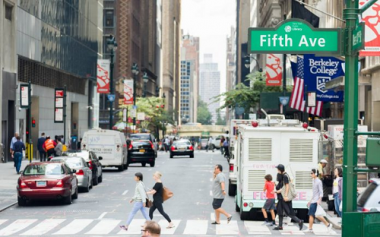

Nordstrom taps influencers to draw anxious shoppers instore
Nordstrom taps influencers to draw anxious shoppers instore
Usually brands uses influencers to showcase their products and advertise for a promotion or release. But now US department store Nordstrom has asked
, a 1.1 million followers Instagrammer, and other influencers, to participate in a campaign that would highlight Nordstrom’s new safety measures and “encourage people to experience what they built,” she said. The subsequent Instagram posts offer a glimpse into pandemic-era retailing and the ways stores are trying to bring shoppers back in person. The posts all praised Nordstrom’s safety measures, like mandatory masks, abundant hand sanitizer and adherence to social distancing. Multiple posts mentioned being able to shop “with peace of mind.”
Other companies are also planning influencer campaigns focused on store safety. Even before the coronavirus pandemic, retailers were struggling to get more people into stores. Now foot traffic to malls, including outdoor shopping centers, is down about 30 percent from last year.


John Lewis Partnership progress report
John Lewis Partnership progress report
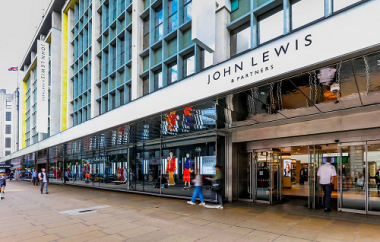
John Lewis is making some important strategic changes which were announced by the new chairman in July, working with a renewed management board. It is closing stores, increasing online, developing partnerships and seriously looking at new businesses. It has also been consulting its employees (partners) on these issues.
JLP Progress update on our Strategic Review Securing our Success

Amazon thrives on virus
Amazon thrives on virus
Amazon recently reported its second-quarter results including a double-digit revenue growth year-on-year, helped of course by the Covid-19 pandemic. Revenue for the quarter reached $88.91 bn, over $7 bn higher than expected. Grocery sales online tripled compared to the previous year.
This meant that the two-day delivery services were unusually delayed. But as the pandemic wore on, orders shifted from the less profitable consumables and groceries towards a more “normal” mix of goods. The delivery delays are on their way to recovery now: the company secured additional capacity in its fulfilment centres which it was not expecting to use until 2021. Prime subscribers have been shopping more often and buying more with each order.
Amazon is now preparing for the peak season in November and has announced that its Prime Day shopping event, normally taking place in July, is now scheduled for the fourth quarter. Inventory has to be built up again.
The company also has to take additional measures to protect staff who were complaining during the pandemic that not enough was being done. For the third quarter, Amazon expects revenue of between $87 bn and $93 bn, with operating income between $2 bn and $5 bn, factoring in corona-virus related investments.
The cloud computing unit, Amazon Web Services, reported revenues of $10.8 bn, up 29% on last year. Third-party sales grew 52% year-over-year during the quarter, outpacing growth in Amazon’s first-party sales, which increased 48% year-over-year.
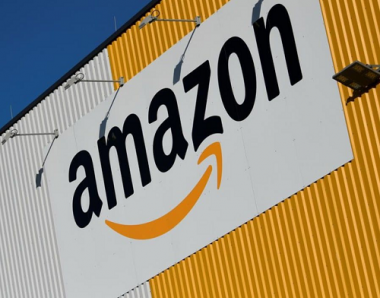

Bracing for a summer without Americans
Bracing for a summer without Americans

US tourists are stuck at home due to the Covid-19 global crisis. For Europe, this represents 14% of tax-free shopping in Paris, and 11% in Italy, and their absence adds up to the loss of Chinese tourists. Vogue Business shares CITI and HSBC’s visions on potential solutions for luxury brands, which are also applicable to department stores: smartly use low-tech communication tools (targeted mailings, messenger systems..) to cater for your local customer but also connect with existing and stuck at home foreign customers, challenge your retail footprint and consider existing non profitable locations, and make sure the promoted assortment is adequate to the mindset of targeted clienteles.
Read full Vogue Business article below
Bracing for a summer without Americans

Manor speeds up its strategic plan deployment
Manor speeds up its strategic plan deployment
The leading Swiss department store Manor is speeding-up the implementation of its strategic plans into digitalization and diversification of its products and services offers. This translates into:
- The launch of a marketplace on its e-commerce platform www.manor.ch to increase assortment variety (products and brands) in fashion, beauty and home
- The nomination of a Chief Digital Officer (CDO): Stefan Wetzler
- The simplification of the customer’s digital journey: instore ordering, click-and-collect and mobile-responsive website
- The launch of a new free Manor World Mastercard®
- The implementation of partnerships with brands such as Sephora in fragrances
- The reinforcement of its local F&B supply chain strategy, via its ‘Local’ label, promoting locally-sourced fresh organic products
This plan includes a strategic reorganization at the HQ level, and the simplification of management layers at the stores level.
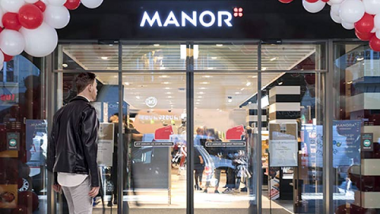
See the press releases -available in German and French only.
Manor beschleunigt ihre strategische Transformation - german
Manor accélère la mise en place de son plan stratégique - french

“The future of our department stores will be ‘phygital’” says Philippe Houzé
“The future of our department stores will be ‘phygital’” says Philippe Houzé

In an interview for the ‘Future of Department Stores’ series, Philippe Houzé, current chairman of the IADS member Galeries Lafayette Group, gave his vision on the future of department stores, and the Galeries Lafayette brand in particular. For instance in believes that stores will have to become phygital, mixing both physical and digital shopping, in order to reach to every customer. Also, talking about expansions, he mentioned the latest Galeries Lafayette store openings locally: Galeries Lafayette Champs-Elysées, and Galeries Lafayette stores in the shopping centres Beaugrenelle in Paris and Royal Hamilius in Luxembourg. All three are very different unique shops that offer an assortment adapted to their local environment to cater specific segments of customers.
Read Philippe Houzé’s full interview below
Philippe Houzé: The future of our department stores will be ‘phygital’

Marks & Spencer offers Mobile Pay Go in 310 stores
Marks & Spencer offers Mobile Pay Go in 310 stores
Marks & Spencer of the UK has rolled out its checkout free shopping experience to 310 stores across the country. Contact-free shopping has been accelerated by the Covid-19 pandemic, and M&S has seen 10 000 new regular users of this technology in their stores since March. Mobile Pay Go is housed within the M&S app and allows payments up to £30. It is also linked to the loyalty programme. It offers a reward for referring a friend to the technology.
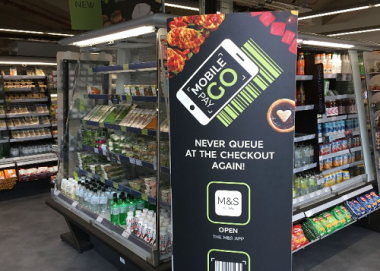
Press release: OVER 300 M&S STORES NOW OFFER CHECKOUT-FREE SHOPPING

Japan department stores hit hard
Japan department stores hit hard
For the first quarter of the current financial year from March to May 2020, Japanese department store retailers have reported heavy losses, according to Japan Times:
- J Front (Daimaru and Masuzakaya) sales were down 58.6% to Y113.4 bn, with an operating loss of Y27.1 bn.
- Takashimaya sales were down 48% to Y116.2 bn, with an operating loss of Y7.3 bn.
- At Sogo & Seibu, sales were down 53.4% to Y68 bn, with operating loss of Y1.2 bn.
- Matsuya lost 69.5% of sales bringing it to Y6.9 bn, while operating losses reached Y959 m.
All four experienced extraordinary losses on top of that due to personnel costs related to store closures during the virus crisis.
Customer numbers remain low even though stores have reopened, and like everywhere, the severe absence of foreign visitors continues to deal a blow to sales.


Malls transition to new models to thrive in the changing market
Malls transition to new models to thrive in the changing market

Malls have undergone permanent transformation since the 90s. The pandemic is not driving new trends, but accelerating significantly the ones already happening: repurpose the spaces into a mix of work/live/play lifestyle offer (thanks to their accessible locations) and better connect with the digital world. As already highlighted in many of our analysis, in-store experience remains at the heart of all players’ strategies.
Read full article below
Malls transition to new models to thrive in the changing market

Safe shopping during the pandemic
Safe shopping during the pandemic

To limit the spread of Covid-19, and to reassure customers, retailers have had to implement safety measures instore.
For instance, all experts agree that to lower the risk of virus transmission, retailers must lower the density of people within the store, by limiting the number of customers in the store at any one time. However to increase throughput (and sales), the number of people in the store has to increase too. In order to maintain social distancing while increasing throughput, customers need to spend less time in the store. Therefore, retailers should focus on the efficiency of the shopping experience by encouraging faster customer decision-making.
Another method to limit the interactions instore, and therefore limit the risk of contagion, used by some supermarkets is to scheduled shopping periods that are exclusively for customers who are 60 years or older. These customers may shop at a similar pace, reducing the number of interactions. Another option is to encourage customers to make appointments to limit customer density and reduce variability.
Globally, in regards to this pandemic, retailers must show that they care about the health of their customers and employees -consumers have shown loyalty to businesses that are putting safety first.
article: What Safe Shopping Looks Like During the Pandemic

The SM Store invests in omnichannel solution
The SM Store invests in omnichannel solution
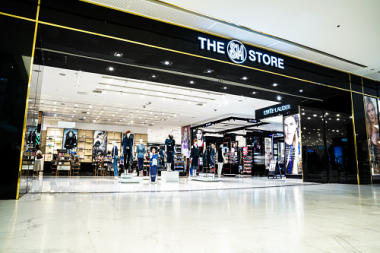
The SM Store, the largest department store chain in the Philippines, will deploy Aptos Merchandise Financial Planning to optimize its omnichannel merchandising strategies. Aptos is a recognized market leader in retail technology solutions, and this particular solution is set to provide end-to-end support for SM merchandise planning activities across its physical and online channels. It includes strategic planning and budgeting, planning by attributes, buying and assortment strategy, in-season management, and more. This will ultimately serve the customer experience better.
The SM Store Advances Omnichannel Merchandising Strategies with Aptos Technology

A work-from-home play set by Fisher-Price
A work-from-home play set by Fisher-Price
Fisher-Price is launching new toys that encourage kids to role-play working from home, to imitate parents that are spending more time at home due to the pandemic. The "My Home Office" playset features a laptop, a smartphone, headset, and coffee cup. The brand is also rolling out an at-home fitness "Baby Biceps" set with sweatbands and dumbbells.



Amazon may be a solution for US malls
Amazon may be a solution for US malls
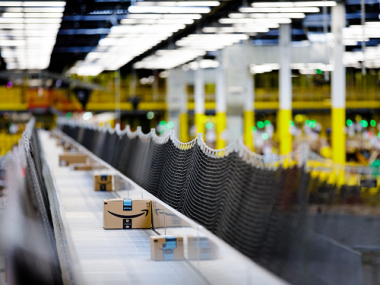
US Malls are hit hard with the pandemic and they are looking for solutions as their department stores anchors are closing down. Amazon may be a solution: they have engaged discussions with mall owners to open Amazon distribution hubs, on former JC Penney and Sears locations. The trick? At a $4 rent per square foot for Amazon, compared to a regular $19 for department stores, mall owners show that they are ready to significantly lower their margins to remain relevant, thanks to their central and accessible locations.
Read two articles below
Amazon may take over old JC Penney and Sears
Abandoned mall department stores may become Amazon fulfillment centers
Related items:

Looking at the post pandemic in-store experience
Looking at the post pandemic in-store experience
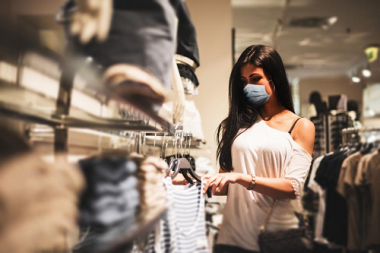
The pandemic has accelerated digital transformations across the retail industry. However, it does not replace interactive in-store experience, provided it conveys a feeling and a message of safety. How? By proposing pick-up options, reviewing the way samples are given to customers (on request, or with a specific ceremonial), proposing individual appointments and guest services, and, above all, make sure that the store looks “fast and easy”, i.e. well lit, with high impact signage and wayfinding, to create a sense of comfort and safety.
Read full NRF article below
Looking at the post pandemic in-store experience

The Mall Group reworks structure
The Mall Group reworks structure

IADS member The Mall Group has announced this summer a reorganization of its activities, into three business structures: retail estate (including malls), trading (including department stores) and finance, accounting and IT. A new generation of managers, both Thai and foreign, coming as a replacement of retiring executives, will help the group transformation. 6 locations will be renovated within next year and a change in leasing policy will help collecting increasing sources of revenue with rental fees, from previous locations that were previously managed with leasehold. According to chairwoman Supaluck Umpujh, the covid-19 pandemic will not stop nor slow the investment program already started.
Read full article below

Now that everyone has sweatpants, what else do they want to buy?
Now that everyone has sweatpants, what else do they want to buy?

As buying patterns have changed since the pandemic, BoF looks at three categories that are booming at the moment, besides from loungewear: home, exercise, and fine jewellery.
Read full article below
Now that everyone has sweatpants, what else do they want to buy?

Nissan’s experiential car showroom of the future
Nissan’s experiential car showroom of the future

In a move to offer customers experience, Japanese car manufacturer Nissan opened an interactive entertainment car showroom dubbed the Nissan Pavilion in Yokohama. The space features variety of experiential content showcasing Nissan’s technology. An experiential video allows visitors to feel what it is like to drive a Nissan Ariya, the brand’s newest electric vehicle, through the city.
There’s also an interactive cafe in the facility with tables displaying nutritional information of any dish placed on the table.
Read full article by The Drum below
Inside Nissan’s experiential car showroom of the future
video: Nissan Pavilion in Yokohama

How impactful were the digital fashion week shows?
How impactful were the digital fashion week shows?

A disappointment: the digital Fashion Weeks were "a flop". Even brands with physical show (Jacquemus, Etro) garnered a smaller audience than last year. Launchmetrics predicts that physical shows will remain the norm, and the challenge lies in the amplification of share-worthy moments both offline and online.
Read the full article below

Say Goodbye to in-store swatching and sampling
Say Goodbye to in-store swatching and sampling

What should we expect when it comes to selling Beauty and Cosmetics over a counter, when physical interaction is prohibited? Samples are a strong tool to sell. What if they were never to come back on the salesfloor?
Read the full article below.

India: Jio, the digital arm of Reliance, is striking significant deals with Silicon Valley
India: Jio, the digital arm of Reliance, is striking significant deals with Silicon Valley

Figures of the Indian online market are impressive: 388m users for Jio Platforms (the digital arms of Reliance Industries) within 3 years, and a target of dominating the digital economy within 5 years. Jio is now striking multibillion dollars deals with Facebook, Google, Qualcomm, Intel, in order to be at the center of the game.
Read the full article below

Lessons from sneaker culture's innovation playbook
Lessons from sneaker culture's innovation playbook

Streetwear and sneaker business models have been a source of retail inspiration for many, with their ability to adapt drops and pricing to tribes of customers, who consider their purchases as collectibles. But have you heard of Aglet? An app allowing players to design, collect and trade digitally-created sneakers. What category could be customer-designed in the Department Store world?
Read the full article below

India: Reliance founder defies Amazon and Walmart in e-commerce
India: Reliance founder defies Amazon and Walmart in e-commerce

Mukesh Ambani, CEO of Reliance and India's richest man, has launched JioMart, an online venture designed to compete with the likes of Amazon and Walmart. Backed by Google among others, it seems that its debuts are facing some issues in a country where the mom-and-pop boutique culture is predominant.
Read the full article below
India: Reliance founder defies Amazon and Walmart in e-commerce


